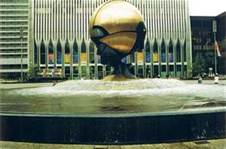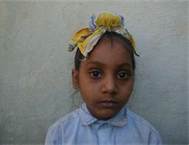
September 11th
And so another anniversary of the September 11th bombing of the World Trade Center has come and gone replete with remembrance ceremonies for the victims and tributes to the people who tried to save them. I didn’t watch them and I have never gone to the site to see the memorial and the new building which rises from the ground once covered with heaps of twisted steel and concrete.
You see, I used to work at the World Trade Center and I would like to remember it as it was: intact, full of people, a normal place of work.
There was a language school there, on the 55th floor of Tower One, which went down with the building, of course. For five years, I taught English as a Second Language at this school, though we offered a variety of other languages as well: German, French, Japanese, Italian, Russian, Chinese and Spanish. Our teachers came from all over the world. They were graduate students and philosophers and ex-pats trying to earn a bit of money. They were well-traveled and well-read if not exactly well-heeled. Our students were diverse as well. We had a lot of businesspeople, due to our location, of course, but we also had international university and high school students. We had actresses and circus performers, cooks and garment workers. We had spouses of all nationalities and backgrounds who, just arrived in the city, had been sent off to get some English under their belts.
Our language school was part of a larger institute which hosted business conferences and with whom we shared premises, but though both our purposes were educational, we were a completely different animal. I remember one day, when a Finnish trade mission was hosting a conference entitled “Finland, Gateway to Russia” at the Institute. A group of businessmen had just emerged from a seminar in which the serious Finns had no doubt been working hard to make the prospect of investing in Finland and Russia less daunting, only to find me sitting there with two Russian acrobats from Cirque de Soleil. Both acrobats were dressed in black leather jackets, had muscular arms and necks writhing with elaborate tattoos, and were chain-smoking heavy Russian cigarettes. The eyes of the attendees grew wide. I thought the Finns were going to cry.
It was that kind of place. The most unlikely people washed up there. A young sixteen-year-old Indonesian boy from a family of nineteen in Sumatra whose brothers, construction workers in Manhattan, had paid for his tuition and used to come pick him up wrapped in wreaths of clove cigarette smoke. The director, Mr. N., of the Tokyo City Government’s Construction Department who would come to class with his books tied carefully in a purple scarf and his homework written on the back of a betting slip. This particular gentleman had a mild crush on a young Saudi mother-of-two whose husband, the first day he brought her, asked if he could see the other participants in her class before he agreed to let her study with us.
“Certainly,” I replied, and led him briskly down the hall to show him a classroom with two middle-aged women, one a Tokyo housewife who was a professional English student at our school, and the other, our Russian teacher’s sister, who was on vacation from studying parapsychology back in Petersburg. At the sight of these two matronly personalities, the Saudi husband was sufficiently mollified to let his young wife stay. A few moments after he had disappeared down the hall, Mr. N. arrived wearing an impish grin.
All the classes were like this, a delightful blend of unlikely acquaintances from a wide variety of different countries and cultures who in the circumstances of their mutual endeavor, respected one another, worked together and became friends.
Just the sort of place the boys in the planes had been taught to hate.
It had all happened once before, of course. Back in 1993. I was scheduled to teach that day, a Friday, but because I wanted a long weekend out in New Jersey, I had switched days with another teacher. We shared a class of three: a Spanish journalist from Andalucia, a young French girl who was working as an au pair in the city, and a French-speaking girl from Switzerland with the loveliest of names, Odile, whose husband was a banker. In fact, on the first day of the course, they all asked me (as we stood and looked down from the dizzy height of the 55th floor), what would happen if there was some kind of emergency. How would we get out?
“You won’t,” I said, finding myself very witty, “just say your prayers and wait for the end.”
But as I stood and stared at the television on that Friday, and at the thick smoke billowing from out of the towers, I remembered what I had said and that the three people I had said it to were still inside. I wanted to shrivel up and die. How could I have said something so obtuse?
Far too easily, in fact. For the first bombing of the Trade Center, pathetic as it might now seem in comparison to the second, before it happened, was unimaginable to me. As it was to most people. As even the second one remains beyond my capacity to fully comprehend. The details, though revisited countless times in one’s head and on the screens of televisions and computers, are still too terrible to understand. The only thing I fully understand was that it was the end of everything, the end of the way life had been.
All three of those students walked out that day, and when I later apologized to them for my stupid comment, they laughed at me.
“I always wanted to know how I would react in a situation like that,” the Spanish journalist said, “If I would panic, or keep my cool. And now I know, and I feel grateful for the experience.”
It was still possible to say that in 1993.
I didn’t cry about the Twin Towers. I was stunned, certainly, horrified, absolutely. But I didn’t cry. The only time I did choke up was years later when with some friends my husband and I spent a weekend in New York. Down in Battery Park, the site of the old Castle Garden, where my ancestors arrived from Sweden in the 1890’s, I saw the globe that used to sit in the courtyard of the Twin Towers. It was surrounded by snaking lines of tourists and was battered and bruised where great hunks of steel and concrete had rained down upon it that September morning. It disturbed me deeply to see it there because I felt so intensely that that was not where it belonged. It belonged up Broadway, in the blazing sun of the old plaza of the Trade Center where there would have been the gentle, civilized sound of water plashing from a fountain, not the primitive cries of gulls and the roar of Atlantic waves. The people surrounding it would have been locals hurrying to get to work, or taking a lunch break on a nearby bench, not paying too much attention to it, for it was just another globe and we’ve all seen plenty. Just another symbol of how we should all live in the world with one another, peacefully, not hating, connected by the planet we inhabit and mindful of our mutual fate, a fleeting few decades, except when they are cut short by events too terrible for us to understand, too horrific to imagine.





Nice Linda… I think of our days there often. We had some amazing students.
When I think of 9-11, I feel such sadness about the windows on the world employees-all those catering people who brought us left overs from that other company. They were part of the community of the building.
I too often think of the support staff of our school and who may or may not have gone up to the Port Authority offices above where the planes hit that day. We will never know.